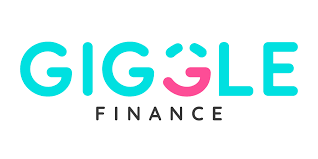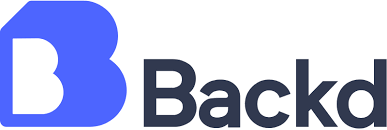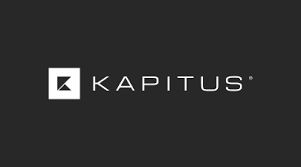No-Doc Business Loans: Is One Right for Your Business?
Online lenders may offer no-doc business loans, but you’ll likely pay more by opting for less paperwork.
Many, or all, of the products featured on this page are from our advertising partners who compensate us when you take certain actions on our website or click to take an action on their website. However, this does not influence our evaluations. Our opinions are our own. Here is a list of our partners and here's how we make money.
Concerned about tariffs?
Many small-business owners are under increased economic stress and uncertainty following the latest tariff announcements. NerdWallet is here to help you find answers for whatever you're looking for. Here are some resources to help you get started:
- Need emergency funding? Consider a business line of credit.
- Looking for fast access to working capital? Discover the best working capital loans.
- Want tips on how to mitigate the impact of tariffs? Read our guide.
Applying for just about any business loan will require at least some paperwork. Although true no-doc business loans don't exist, there are some options that require far less documentation than traditional small-business loans.
What is a no-doc business loan?
A no-doc business loan refers to a business loan that requires minimal documentation, such as only business bank statements, to apply. Low-doc business loans tend to have higher interest rates and shorter repayment terms than business bank loans or SBA loans. However, for borrowers who can’t qualify for more traditional funding options and/or those who need capital quickly, these loans can offer flexible qualification requirements and fast funding times.
How much do you need?
We'll start with a brief questionnaire to better understand the unique
needs of your business.
Once we uncover your personalized matches, our team will consult you
on the process moving forward.
Find the right loan for your business
Tell us how much you need and see your options in minutes.How do no-doc business loans work?
The documentation that traditional lenders request — typically bank account, cash flow and profit and loss statements — helps them paint a picture of your business’s ability to repay a loan. Lenders that require less documentation typically base their lending decision on other factors, like the amount of collateral you can pledge or your incoming invoices. hey may also charge higher interest or require weekly payments to feel more secure that they will be repaid and so don’t need to look too deeply into your business’s financials.
Nearly no-doc business loan options
These types of financing tend to require minimal paperwork.
Unsecured short-term business loans
Unsecured short-term business loans don't require physical collateral, such as equipment or property. Compared with secured, longer-term loans, these products tend to have less documentation and fund faster.
Many short-term lenders ask for very little paperwork, and some even allow you to connect your financial data to their system so that they can evaluate your business information more quickly, without asking you to upload various documents.
As an example, in order to apply for a short-term loan from OnDeck, you only need to provide basic information about yourself and your business, as well as three months of business bank statements. According to the lender, the application process can be completed in minutes and funds can be available as fast as the same day.
Therefore, if you need a quick business loan, an unsecured loan may make sense. But you should be careful and confident in your ability to pay it back — short-term loans tend to have high interest rates and quick repayment terms.
OnDeck’s maximum term is 24 months, for instance, and interest rates can range as high as 99% (minimums provided are rates that at least 5% of customers received). You’ll likely need to provide a personal guarantee on an unsecured business loan as well, which creates additional personal liability.
Business line of credit
Like unsecured short-term loans, many online business lines of credit require very few documents. These credit lines offer flexible funding that can be used for working capital and general business expenses.
For example, Fundbox offers a business line of credit up to $150,000 with repayment terms of 3 or 26 months.
To apply, you’ll sign up for a Fundbox account, enter some basic information about yourself and your business and then provide financial data by connecting your accounting software, business checking account or another source. The entire process can be completed in just a few minutes and if approved, you can receive funds as quickly as the next business day.
How Fundera by NerdWallet Works
Getting a business loan can be challenging. Let our sales experts help you through the process.

Fill out a simple application Our 3-min. questionnaire is free & won't impact credit.

See your loan options Compare rates and repayment terms to choose the best product for your needs.

Get your loan If approved, sign closing documents and receive funds.
Invoice factoring
Invoice factoring isn’t technically a loan, but it does provide businesses with money quickly and with minimal paperwork. With invoice factoring, also called accounts receivable factoring, you free up cash by selling unpaid customer invoices to a third-party company at a discount. Typically, you’ll get around 85% to 90% of your money upfront, with the rest coming — minus fees — after the invoice is paid.
When you apply for invoice factoring, many factoring companies give you the ability to create an account and connect your accounting or invoice software to their online platform.
With the company FundThrough, for example, you can provide basic information about your business and connect your QuickBooks account to the FundThrough platform. Then, you can pull invoices from QuickBooks into FundThrough and select which ones you’d like to submit for funding. Once they’re approved, funds are deposited into your bank account as soon as the next business day.
Invoice financing
Similar to invoice factoring, invoice financing, or accounts receivable financing, allows you to use unpaid customer invoices to get funding for your business. Instead of selling your invoices to a third-party company, you use them as collateral against a business loan.
Your application requirements will vary based on your lender, but generally you’ll be asked for things like bank information, articles of incorporation and access to your invoices.
Merchant cash advances
Merchant cash advances (MCAs), sometimes referred to as business cash advances or business payday loans, provide upfront funding that you repay with a portion of your credit or debit card sales, plus a fee. You may be able to qualify with just a few months of your business’s credit card statements.
However, it’s important to note that MCAs are one of the most expensive types of business financing and require frequent (sometimes daily) payments. APRs on merchant cash advances can reach triple digits and these products can quickly create a cycle of debt that’s difficult to break. If possible, you’ll want to look at all other options before turning to an MCA.
» MORE: Bad credit business loans
Lenders that offer no-doc business loans
Online, alternative lenders are typically the ones that require minimal paperwork to apply for a loan. Here are some lenders to consider when comparing your no-doc business loan options.
Pros and cons of no-doc business loans
| Pros | Cons |
|---|---|
| ✅ Simple application. Compared with more traditional types of financing, you don’t need to spend too much time gathering or preparing paperwork to apply for a no-doc business loan. You can apply for one of these products quickly and easily online, and in many cases, the process only takes minutes. | ❌ Higher interest rates. Because you don’t provide as much paperwork with a low-doc business loan, the lender can’t be as confident about your ability to repay the debt. To lessen its risk, the lender charges higher interest rates as a result. |
| ✅ Quick access to funds. Many of these online lenders can approve and fund applications within just a few business days, sometimes even faster. | ❌ Shorter repayment terms. No-doc business loans typically have short terms, anywhere from 12 weeks to 24 months. More traditional loan options, on the other hand, can have repayment terms up to five, 10 or even 20 years. |
| ✅ Easy to qualify. Like other online loan options, no-doc business loans tend to have flexible eligibility requirements; startups and borrowers with bad credit may be able to qualify. | ❌ Risk of debt cycle. With high interest rates, short terms and frequent payments, no-doc business loans can quickly become a problem, especially if your business is already struggling with cash flow. If you can’t keep up with your payments, you may try to take out another loan or refinance your existing one in order to repay, which can create a cycle of debt that’s difficult to break. |
How to get a no-doc business loan
To get a business loan with minimal documentation, you’ll likely be limited to working with alternative or online lenders. The application process will, in many ways, follow the typical process of applying for a small-business loan.
Alternatives to no-doc business loans
- If you’re a startup with few or no business financial documents, you may consider crowdfunding your business, which involves raising money in small amounts on an online platform.
- If you’re an early-stage business with good personal credit, there are several business credit cards you may be able to get. However, you’ll usually need strong personal credit to qualify and get the best rates and terms.
- If you have bad credit or no personal income, you may try a friends and family loan to finance your business. To avoid the potential for personal disputes, just make sure you put any agreement into writing.

Frequently Asked Questions
Is there such a thing as a no-doc business loan?
True no-doc business loans don’t exist, but there are options that require minimal paperwork to get funding.
Is it hard to get a no-doc business loan?
Because no-doc business loans typically exist for businesses that don’t qualify for traditional forms of lending, they can be fairly easy to qualify for; however, they will likely come with higher interest rates and shorter repayment terms.
Which banks offer no-doc business loans?
Most banks and credit unions do not offer no-doc business loans. Online lenders are more likely to offer loans with less paperwork.
What do you need for a no-doc business loan?
The application details you need to provide will vary based on your lender and loan type. The minimal documentation you’ll need will typically include the following:
- Business plan.
- Business legal documents and tax ID number.
- Invoices for invoice financing.
- Business bank statements.
Can you get a business loan without tax returns?
Many online and alternative lenders offer no- or low-doc business loans that require only a few bits of information and minimal documentation. These lenders typically don’t require business tax returns to extend a business loan.
If you’re a startup currently without business tax returns but you’re open to providing more documentation than the low-doc options require, explore our list of business loans for startups.
Article sources
NerdWallet writers are subject matter authorities who use primary,
trustworthy sources to inform their work, including peer-reviewed
studies, government websites, academic research and interviews with
industry experts. All content is fact-checked for accuracy, timeliness
and relevance. You can learn more about NerdWallet's high
standards for journalism by reading our
editorial guidelines.
Related articles















